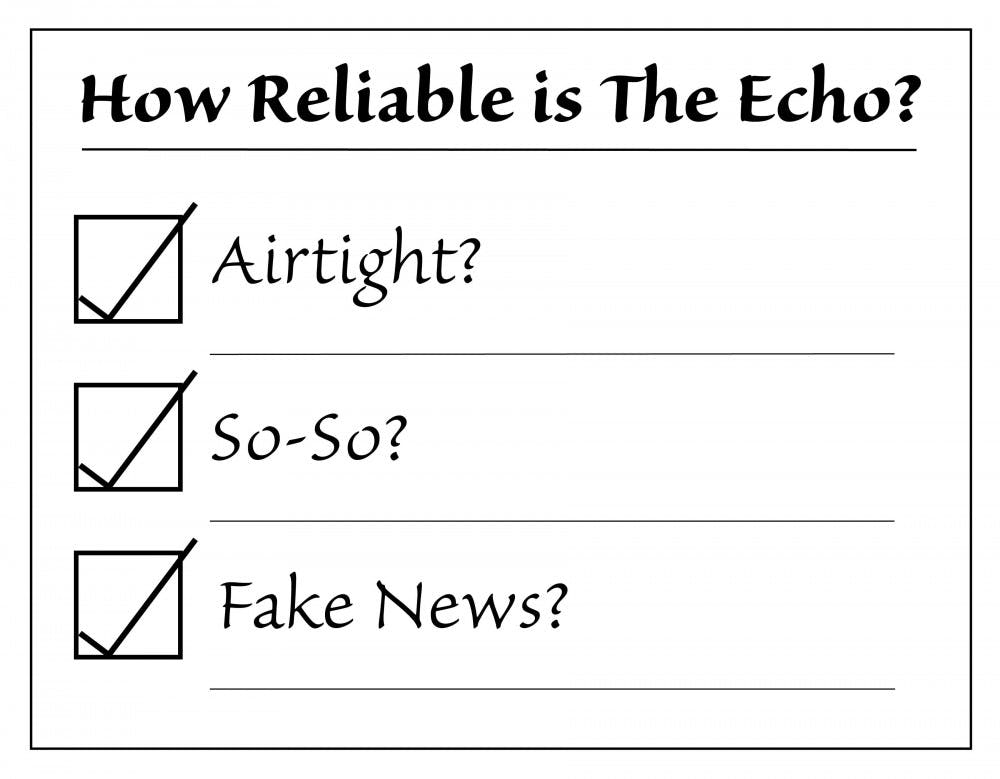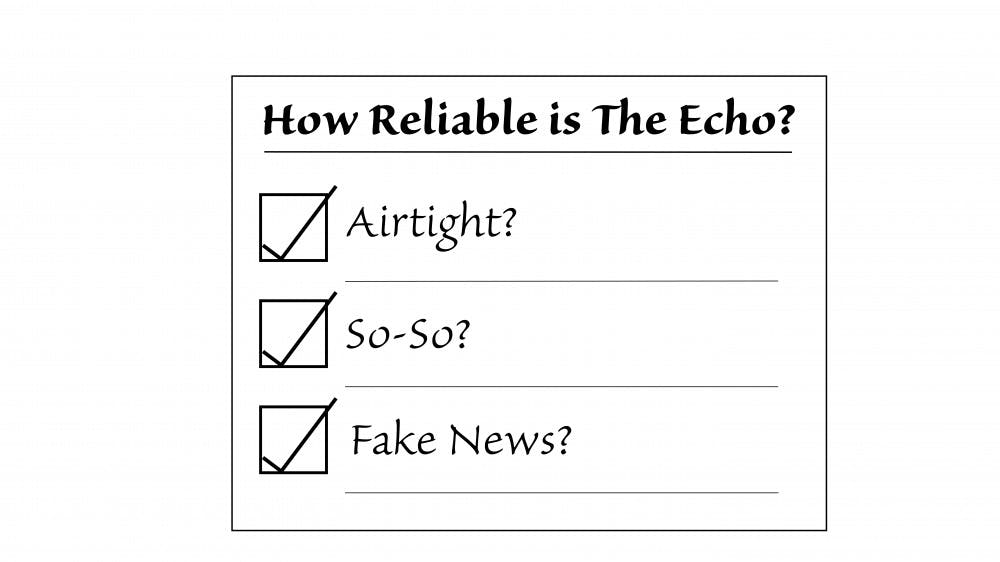By Sean Mitchem | Contributor

I don't read newspapers. Rather, I don't have the time to read them. I pick up a newspaper if I am intrigued by something being featured. So I felt more than a little nerve-wracked when asked to write a critique of The Echo, a paper I rarely read. For this article, I interviewed three faculty members about their thoughts on our student newspaper. Each professor had been interviewed previously by someone on The Echo's staff, and each claimed to read the paper regularly.
Jeanne Sigworth, associate professor of communications, praised The Echo as "competitive and relevant" in its choice of topics and strong in its writing mechanics. An Echo reporter once interviewed Sigworth about someone who spoke in her class, and Sigworth found the interview experience satisfactory, admiring the reporter's commitment to excellence. She called their interview questions informative and stated that The Echo has had a positive impact on Taylor. Her only criticism is that the paper should provide additional sports updates and the schedule of all upcoming events.
A second professor's perspective provided a counter to Sigworth's praise. Several times, Echo reporters have asked for his expertise on matters in his field. Like Sigworth, he thought the journalists' questions, interviewing skills and writing were fairly good. He finds The Echo informative about recent events at and outside Taylor and finds Echo articles consistent and sometimes humorous.
However, though he's had some good experiences, he feels The Echo conveyed his ideas awkwardly. More concerning, he sometimes found his words taken out of context and misrepresented. He believes Opinion articles in particular sometimes criticize people without sufficient evidence-something that editorial oversight could and should prevent. He also expressed concern over The Echo's effects on prospective students and felt the publication is overly negative. Most revealing: his first impulse when reading the weekly Echo is to scan the paper in case anyone wrote something scathing about him or inaccurate about the university.
Rob Linehan, chief information officer, offered another perspective. Linehan teaches a class in Human Relations in Organizations. He appreciates The Echo's consistency, its recent advertising and its reasonable writing.
The Echo has interviewed Linehan numerous times for information about Taylor's technological scene. Linehan noted that the articles from these interviews did not consistently convey technical concepts effectively, possibly due to lack of technical understanding on the part of the journalist. Linehan also observed that many of these interviews with Information Technology seemed last-minute and sacrificed quality as a result. He stated that the presence of an IT beat reporter would help to remedy these problems, and he has suggested this in the past.
My own experience with The Echo has been similarly mixed. In Fall 2015, one of my close friends was quoted out of context along with other members of a campus organization. My friend said The Echo's journalist did not declare she was a reporter before asking questions at a meeting of the organization. The journalist used fragmented quotes, molded to fit her agenda rather than conveying the intentions of the sources. These breaches of practice hurt my friend deeply and could have harmed members of the organization. To The Echo's credit, they issued an apology for the offense. However, this was my first major encounter with The Echo, and it tarnished my view of them.
In contrast, I was recently interviewed by an Echo journalist for an article on floor artifacts. The journalist was respectful of the floor's traditions and our desire to keep some of them secret. I immediately picked up the article when it came out and was satisfied that the sources and the material were accurately represented.
I think The Echo does its job as a student paper, though it has significant faults. No paper is perfect, and I want to thank the student workers for the time they put into it. For the future, I ask The Echo to consider employing a beat reporter for the IT department, to do their interviews early and to re-emphasize the importance of good journalism-guarding against the unwarranted grilling of persons and the misuse of quotes.





